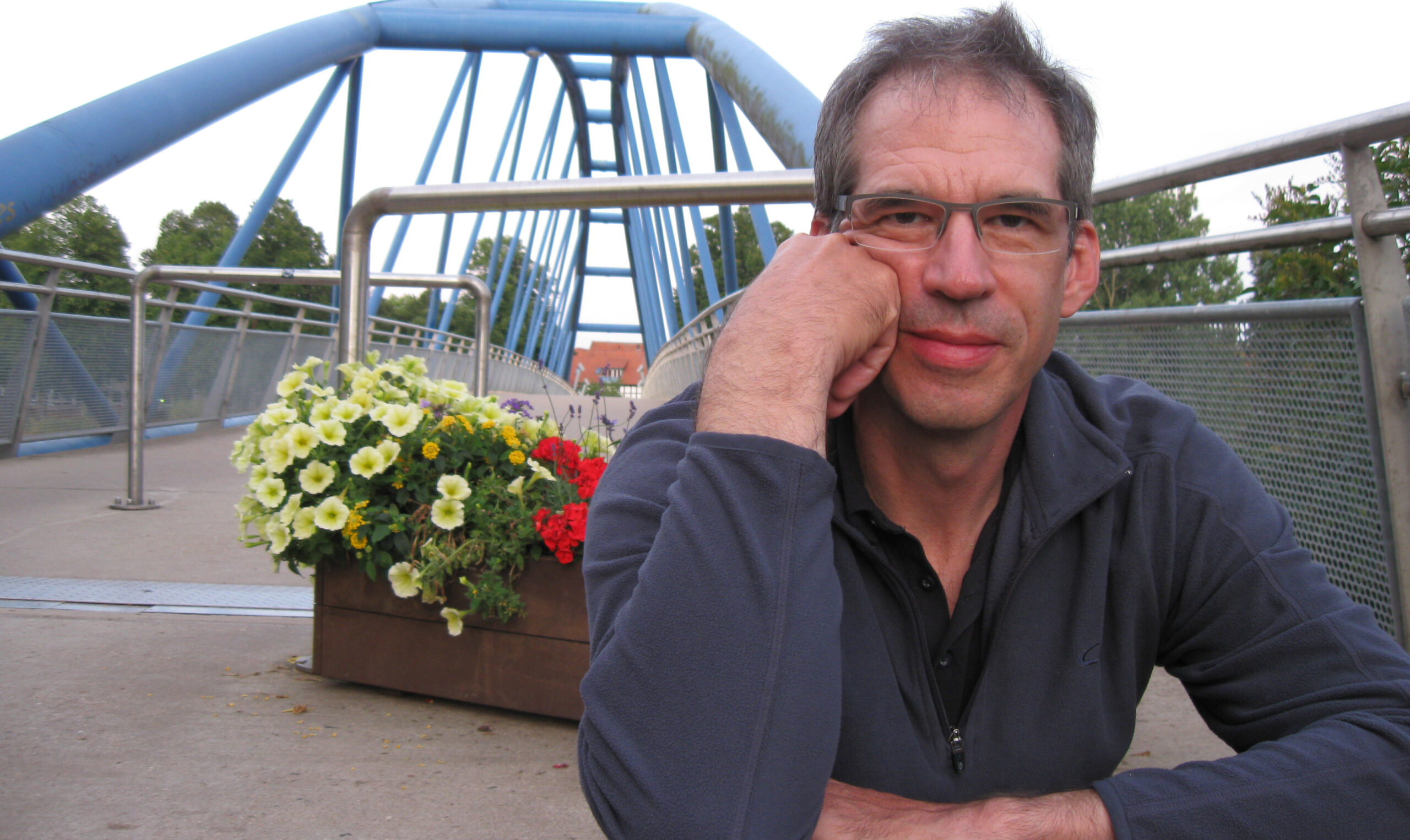PART I: No Verstehen, No Cry (Living in a Sound-Bubble)
or “No German, no problem… language is not in question when escaping a raging inferno”
Basically, there have been times in my life when I’ve stood with my back to a raging fire, while standing toes-over on the edge of a chasm. Across the chasm there is a place called “Hope.” Distorted by the smoke from behind me, and blurry from the tears streaming from my eyes. it promises fields of green grass, happy milk cows and enough money to pay my bills, as well as other vaguely-clear other-side betterments.
In the case of Germany, behind me was 25 years in Boston and near-poverty as a self-employed performer-writer, and across the chasm was a land known as Germany. So I leaped. Or rather I staggered off my plane that fateful day lugging two 25-kg suitcases full of books, 2 15-kg “carry-ons” full of books (don’t ask) and no language skills. And I dragged my sorry butt and my myriad suitcases and duffelbag (oops, forgot to mention that) into the country of Beer Gardens, the land of the self-confident and seriously content Deutsche, living in tranquil towns and cities (many of them founded hundreds of years before the Pilgrims’ voyage-of-discontent) surrounded by fields of corn and wheat (and hops, lots of hops).
It was thrilling, I had entered the land of affordable comprehensive health insurance, free education and work for a reasonable wage. Where everyone, even the youngest children, amazingly enough, were able to speak with and understand each other in a language known as das Deutsch. Truly, one of the most amazing discoveries of my entire life.
All of what I’ve written above is true, although the self-confidence of Germans is most evident in their complaining about a) how bad things are (not-perfect), b) how late the trains always are (although they insist that Germans are not obsessed with punctuality, because if they were, then clearly the trains would run on time), and c) the outrageous increase of several cents over last week of whatever that thing was that they’d bought that morning at the supermarket.
And, yes, the health care is comprehensive, although when you arrive for your 9am appointment you should not be surprised if you must wait an hour or more before the doctor will see you… but hey, everyone with a regular job is excused from work with pay, so no worries there! And the education is free, except that on weekends the Uni is empty and there are no football games, in the cafeteria there are no line-chefs and in many classrooms there are still chalkboards and antiquated video projectors.
And finally, yes, not only are the wages reasonable and provide for most a living wage, but in Germany the worker rules the roost — s/he has innumerable rights and legal privileges regarding a company’s ability to lay him/her off or fire her/his ass… er butt… er esteemed personage.
But let’s get to the point of this little essay: when I arrived in Germany without my German, I discovered that not being able to speak or understand German had a peculiar upside: I was now living in a world surrounded by pure sound, sound reduced to its most primitive components. The birds were singing, the news was on the radio, the cashier at the supermarket, the policeman speaking to me about my bicycle-riding style: all of these were simply sound, pure sound whose meaning was reduced to pitch and volume and accent.
It was sometimes melodious (the birds), sometimes vaguely unsettling (the news in German sounds very serious), sometimes sharp and disapproving (the cashier at the market because I had done something wrong… again), and sometimes politely patiently and admonishing (the policeman who brabbled for a couple of minutes in German and then pulled out a wireless debit card machine so I could use my bank card to pay the fine for riding on the wrong side of the street).
But despite the minor inconveniences and unexpected expenses, overall, I found living in this pure-sound no-meaning bubble rather comforting. I mean, let’s be honest: what could anyone expect of me if I couldn’t understand what they were saying, what was written on the signs and what they wanted of me… other than the occasional late fees and bicycle-traffic fines? Not much.
Yes, as you can well imagine, I was living in a special one-of-a-kind kind of paradise. Yes, of course, it didn’t last, but that’s years in the future, so I won’t bring down the mood with sad and tragic stories from the years after I’d learned enough German to be… er… angry and frustrated. Because it was all much harder and more confusing than I’d ever imagined.
But for now let’s just take a nice little break and savor my naivite and my relief at having health care I could afford. And finally making enough money to pay my bills. And the peace of living in a sound-bubble where, for at least the first year or so, I was surrounded by words with sound and no meaning.
-> To Part II: No Verstehen, No Cry (Living in a Sound-Bubble)
